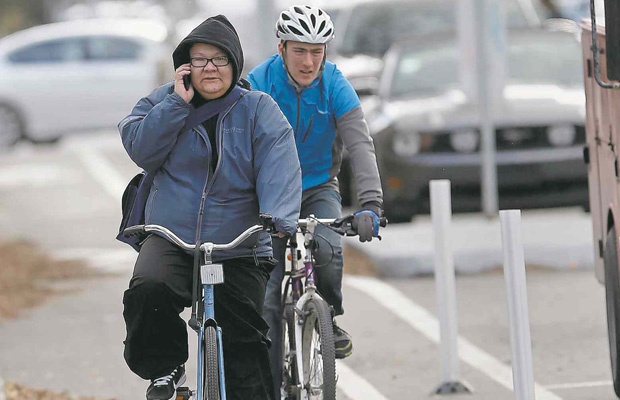Rethinking Lifestyle
The Driving Paradox

According to a recent survey, 78% of Canadians know their driving has a negative environmental impact, but they are not likely to give up their vehicles even when they could easily use other forms of transportation. Were that survey done in Steinbach, how would it look?
According to the survey, more than a third (43 per cent) of Canadians ranked driving as the personal behavior that has the most negative impact on the environment. This was compared to garbage production and disposal (56 per cent), electricity use (27 per cent), and water usage (34 per cent). Yet, people still find driving the hardest habit to break. Only one in five is ready to give up driving for work/school [even though there are alternatives], and only 19% are ready to give up their car for recreation.
Surveyors asked people to rank what they would be most willing to give up. They found that only 1 per cent of Canadians would be willing to give up their cars. We’d rather go without: Junk food (36%), Credit cards (15%), Cell phones (15%), Coffee (14%), Internet (7%), Sex (2%).
Three in four Canadians (76 per cent) admit they will drive even if they could walk, bike or take public transportation
We all know that:
- Driving costs money. According to the Canadian Automobile Association, driving a mid-sized sedan 18,000 km/year costs on average more than $8,440 in fuel, maintenance and other operational costs. Driving a mini-van costs over $11,200.
- Getting out of the car is good for our health – walking or biking is great exercise.
- Walking or biking is less stressful than sitting in traffic. In fact cycling past backed up cars can be thrilling.
- Walking or biking contributes to community. It promotes interaction with our neighbors.
- As more of us walk or bike, our city needs to devote less space to highways and parking lots.
- Leaving the car at home is kind to the planet. Our children and grandchildren will thank us for having left our car at home.
We know all of this! This is not new knowledge! Yet we continue to take the car. The car has become part of our culture. We have become as addicted to our car as the alcoholic is to alcohol.
What would it take to get you to leave the car at home? What could City Council do that would motivate you to drive less?
Isn’t it time we challenged our unhealthy relationship with our cars and began to seriously look for alternatives. Few people who live and work in Steinbach NEED to drive to work. What would happen to our community if we all were to leave our car at home?




